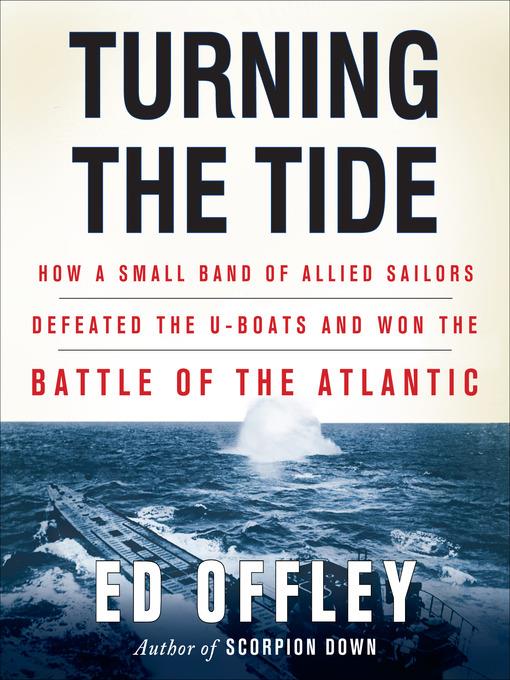
Turning the Tide
How a Small Band of Allied Sailors Defeated the U-Boats and Won the Battle of the Atlantic
کتاب های مرتبط
- اطلاعات
- نقد و بررسی
- دیدگاه کاربران
نقد و بررسی

British narrator James Adams narrates this meticulously researched account of the struggle for control of Atlantic shipping routes during WWII. Ultimately, it's a narrative of the Allied victory over the German U-boats, and Adams gives it a straightforward rendering. When presented with the occasional quotation, he does not vary his vocal qualities, though that does not detract from the work. A problem is the author's relentless use of military nomenclature referencing ships, aircraft, and convoys, particularly his repetitive use of categorizations and specifications regarding the numerous vessels and weapons in the story. In an audio format the jargon, which will be unknown to many listeners, becomes monotonous and confusing. S.K.G. (c) AudioFile 2011, Portland, Maine

March 21, 2011
WWII's Battle of the Atlantic, where Admiral Dönitz's U-boats attempted to starve Great Britain into capitulation, was one of many crucial points in that conflict that were indispensable to Allied victory. If the Germans had succeeded in interdicting its maritime lifeline, Britain would not have become the Allies' "unsinkable aircraft carrier" and staging point for invasion, which in turn meant that there would have been no second front in France, and this in turn could have lead Stalin to make a separate peace with Hitler. By examining two actions against Allied convoys in March and May 1943, Offley (Scorpion Down) demonstrates how the Allies were more responsive to changing technological and tactical conditions, while the Kriegsmarine was hampered by a failure to recognize the same changes and by a culture that encouraged reporting inflated results; curiously, both opponents had cracked the other's codes, but the Allies made better use of the intelligence. The author focuses on individual combatants, from the lowest ranks to the highest, emphasizing the human elements and making for an extremely readable text that should appeal to neophytes as well as professionals.

























دیدگاه کاربران